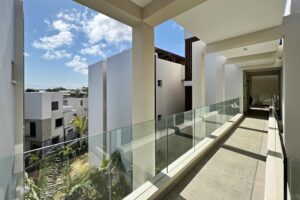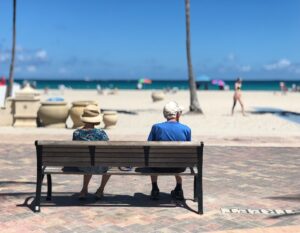The Immigration Act 2022 amended the Non-Citizen (Property Restriction) Act and brought in some key changes in relation to foreigners buying property in Mauritius. Now that the bill is law, we look at some of the most relevant changes for non-citizens buying property in Mauritius. Foreigners have always been able to buy a residential property within the different approved schemes. They have also been able to buy commercial buildings with permission. Now they can buy a residential house or land outside the PDS, Smart City, IRS and RES schemes. Go to this article for a list of the best luxury villas for sale in Mauritius in 2024.
UPDATED JANUARY 2025 – The authorities have confirmed that the laws allowing the purchase of real estate outside the schemes, are in place. There are however real problems with the time taken by the PMO to approve the sale of these properties and even now there are buyers waiting for up to a year with no approval. We have mentioned in this article below a few of the main limitations of this new rule.
Who can buy a property in Mauritius outside the current schemes?
Any foreigner can buy a property in Mauritius but historically this was only in certain approved developments such as a PDS or a Smart City. The new rules allow a non-citizen who is resident in Mauritius according to the Immigration Act 2022 to buy a property in Mauritius outside the current schemes. Foreigners are understandably excited about the prospect of buying a modern house, and finding that the house on sale is free-standing and independent.
Who is resident in Mauritius?
Any foreigner that has been issued with a permit under any of the following options:
- a residence permit;
- a permanent residence permit;
- an occupation permit;
- a short-term occupation permit; or
- a family occupation permit.
 can a foreigner buy an apartment in mauritius?
can a foreigner buy an apartment in mauritius?
A foreigner has been able to buy an apartment in Mauritius for many years. To buy an apartment in Mauritius, the apartment block must be at least 3 floors, i.e. Ground plus 2 floors. The minimum price for entry to buy is MUR 6 million. If a foreigner buys an apartment in Mauritius at USD 375,000 or more, they will receive permanent residence.
 Can a Foreigner buy a villa in Mauritius?
Can a Foreigner buy a villa in Mauritius?
Foreigners have been able to buy a villa in Mauritius in certain schemes such as the PDS or Smart Cities for many years. The new rules enable a foreigner to buy a villa in Mauritius outside these. A foreigner cannot buy a villa on the beach unless special dispensation has been given. One can buy a villa in Mauritius as a “standalone residential property constructed on an extent of land not exceeding 0.5276 hectare (1.25 acre)” according to the latest rules.
 Can a Foreigner buy land for sale in Mauritius?
Can a Foreigner buy land for sale in Mauritius?
A foreigner can buy land for sale in Mauritius. They were permitted to buy serviced land for sale and land in a smart city in certain circumstances. A foreigner can now buy land for sale in Mauritius as per the latest rules, “bareland or serviced land not exceeding 0.5276 hectare (1.25 acre)’
 CAN RETIREES BUY PROPERTY IN MAURITIUS?
CAN RETIREES BUY PROPERTY IN MAURITIUS?
The latest budget states that retirees are eligible for a residence permit provided that the property acquisition price is over USD 200,000 and that they are over 50 years. Another requirement is that the property is under the Property Development Scheme, where projects specifically cater for senior living. Getting a residence permit through buying property can lead to permanent residence as long as the non-citizen owns the property.
CAN A FOREIGNER BUY PROPERTY IN MAURITIUS UNDER THE SUSTAINABLE CITY SCHEME?
Foreigners can buy property under the Sustainable City Scheme at a minimum price of USD 375,000. This will grant the foreigner permanent residency in Mauritius as long as they own the property.
What are the conditions for a foreigner to buy a house for sale in Mauritius outside the current schemes?
For a foreigner to buy a house for sale in Mauritius outside the current schemes, they must have a permit and the property must be worth at least USD 500,000. You will need approval from the Prime Minister’s Office to buy the property. It is worth noting that, when buying a house for sale in Mauritius outside the current schemes, an additional government duty of 10% applies. The main permit holder is allowed to buy only one property in Mauritius outside of the existing schemes, and this allowance does not extend to their spouse or children.
There are 2 main limitations to buying a house for sale outside the current schemes. Foreigners will not be allowed to rent out the property and will not be granted permanent residence. As mentioned above, foreigners must already have a permit before buying a property outside the current schemes. In comparison, buying a property of at least USD 375,000 in an approved scheme leads to permanent residence and does not require having a permit. Contact us to explore the best way to buy a property in Mauritius as a foreigner.
Can more than one investor get permanent residence from buying Mauritius Property for Sale?
Yes, the concept of fractured ownership from more than one investor buying Mauritius property for sale became law in 2022. The rule is for when for example a husband and wife, or two business partners want to buy a Mauritius property for sale together. If they both invest at least USD 375,000 each into the Mauritius property for sale, then they both independently receive permanent residence. This is a very welcome change to encourage foreigners to invest in houses, apartments, and villas in Mauritius. This fractional ownership policy in Mauritius still stands true in 2023.
What TBI Business Advisors can do for you:
- We will have a Zoom/ Teams call or email exchange to understand your requirements.
- We can assist with the finding and purchasing of property, and setting up of an entity to purchase through.
- TBI will advise on the appropriate permit or visa for coming to Mauritius.
- We will send a detailed proposal with clear costs, timeframes and explanations.
- We will assemble the documents and make the application on your behalf.
- If you need assistance with setting up companies whether as an investor or just creating a business here.
- We can assist with relocation tasks such as helping with schools, accommodation, insurance, choosing locations.
- The directors can act as Commissioner for Oaths.
- We can assist with other business advice and can bring in law firms as and when required.
Please contact us via our website, via email to info@tbimauritius.com or via the form below.
While every effort is made to ensure that the information given is accurate, the information on this site does not contain legal, tax or any other professional advice. We accept no responsibility or liability due to any information or representation, whether accurate or not, relied upon in the contents. It is an information guide to provide the reader with a useful general, but basic understanding of the different considerations. You must seek local legal, tax or other professional advice before relying on the contents of this site.


